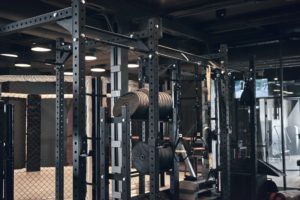by Randy Leopando
You’ve been exercising regularly, but now it’s summer — and hot. Sometimes even dangerously hot, and seemingly too hot to go work out.
But don’t decide this is the time for a little summer break from fitness, experts say, because you may be hurting yourself in the longer term.
“It’s important to continue exercising over the summer because the effects of exercise training are rapidly lost once training stops — use it or lose it,” said Barry Franklin, Ph.D., director of the William Beaumont Hospital Cardiac Rehab and Exercise Laboratories in Royal Oak, Mich. “Most studies suggest many of the key benefits are lost in four to six weeks of inactivity.”
Be smarter than the heat
Still, you can’t just ignore the heat because you could wind up with heat stress, heat stroke or other problems. So to keep the heat from melting your workouts, Franklin recommends you:
- Hydrate, hydrate, hydrate. Maintain salt-water balance by drinking plenty of fluids (preferably water) before, during and after physical activity. Avoid alcoholic and caffeinated beverages.
- Exercise smarter, not harder. Work out during the cooler parts of the day, preferably when the sun’s radiation is minimal — early in the morning or early in the evening. Decrease exercise intensity and duration at high temperatures or relative humidity. And don’t hesitate to take your exercise inside, to the gym, the mall or anyplace else where you can get in regular physical activity.
- Ease in to summer. Allow your body to adapt partially to heat through repeated gradual daily exposures. “An increase in the body’s circulatory and cooling efficiency, called acclimatization, generally occurs in only four to 14 days,” Franklin said.
- Dress the part. Wear minimal amounts of clothing to facilitate cooling by evaporation. “Remember, it’s not sweating that cools the body; rather, the evaporation of sweat into the atmosphere,” Franklin said. Wear lightweight, light-colored clothing in breathable fabrics such as cotton.
- Team up. If you can, exercise with a friend or family member. It’s safer, and could be more fun.
Know what’s up
Because vigorous exercise in hot and humid conditions can lead to heat stress, heat stroke and related complications, you should know the signs of danger to keep an eye out for.
Symptoms of heat exhaustion:
- Headaches
- Heavy sweating
- Cold, moist skin, chills
- Dizziness or fainting
- Weak or rapid pulse
- Muscle cramps
- Fast, shallow breathing
- Nausea, vomiting or both
Symptoms of heat stroke:
- Warm, dry or moist skin
- Strong and rapid pulse
- Confusion and/or unconsciousness
- High body temperature (above 103oF)
- Throbbing headaches
- Nausea, vomiting or both
Take steps to cool down and get medical attention immediately if you experience any of these symptoms.




